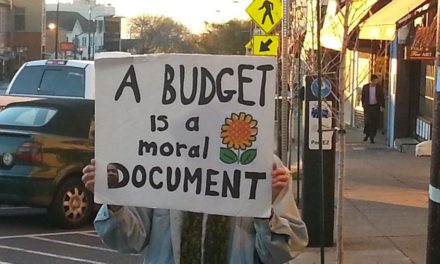Two-thirds of the schools in the Memphis district do not meet state benchmarks.
That’s some of the worst news Memphians have ever received from the recent state report card on schools; however, it sets up new Memphis City Schools Superintendent Kriner Cash to appear to be a miracle worker in the next couple of years.
In this way, he is the envy of every elected official in this community. In that political world, success and failure often hinges on expectations, and that’s why low expectations are often the keys to the kingdom.
In other words, no one begins his work with lower expectations held by the public than the superintendent. The recent results by Memphis City Schools on the recent state report card were, in a word, dismal, and it’s hard to imagine that there’s anywhere to go but up.
Party On
Then again, we hasten to add that we thought the same thing when former superintendent Carol Johnson was at the school district, and that was only a couple of years ago. If her tenure proved anything, it is that we wouldn’t accept positive public relations for positive student improvement. (Footnote: in her Boston district, 100 of 143 schools failed to meet state standards under No Child Left Behind.)
We’ve written before about Supt. Johnson’s masterful manipulation of the “safe harbor” provisions of No Child Left Behind and how it masked the fact that about 105 schools were not meeting state benchmarks. Safe harbor allowed Memphis City Schools to proclaim in its press release at the time that “128 Schools (in good standing)… Most in NCLB History!”
The fiction that Memphis City Schools was making progress was aided and abetted by Tennessee Department of Education, because upon release of the state report card, celebrations and parties were held for the benefit of the news media in Memphis and Nashville to announce results. What wasn’t announced was that there were 60 city schools listed in “good standing” that actually weren’t meeting state benchmarks at all, because they were docked in safe harbor.
Defrauding The Public
Back then, the state Department of Education even breathlessly told us that our students were in the top 5 of the 50 states in eighth grade math and reading, fourth grade reading and math, and high school reading. What they didn’t tell us was that they had dumbed down the test so much that for a student to be considered “proficient,” he could essentially make a “D” on the state test.
Of course, the claim that Tennessee was in the Top 5 was made even more incredible, because it was made in the face of the National Assessment of Educational Progress (NAEP) results that ranked Tennessee #40 and put its percentage of proficient students in the range of about 25 per cent (compared to about 90% according to state education officials).
We say all that to say this: Supt. Cash gets points for not encouraging Memphians to misunderstand the depths of the problems in our schools and the depths of the challenges to his success. He did not over-inflate the results or engage in the hyperbole that routinely has accompanied them. Most of all, he rightly suggested that the state tests were an incomplete measure of student performance.
Law And Order
Of course, it’s not particularly encouraging that there are daily reports of emails being sent by Deputy Superintendent Irving Hamer, the latter half of the “good cop-bad cop” team at Memphis City Schools, telling principals to warn their teachers to reduce the numbers of “D’s” and “F’s” being given.
Mr. Hamer is no stranger to controversy, particularly during his time as a member of the New York City Board of Education, a time when New York Magazine wrote: “Hamer calls himself a deeply private man, but since then, Manhattan’s representative to the Board of Education has been the subject of steady scrutiny, most of it unflattering.” From being called “crazy” and accused of Anti-Semitism to being investigated for a conflict of interest, he cast a controversial shadow across the New York district during his term there.
But, we hasten to add that it is too easy to pigeon-hole people on the basis of a few years in their lives, but clearly, he is the most controversial figure in Memphis City Schools these days. From stories of berating principals to threatening to fire people who disagree with him, he is a lighting rod for negative reports on the district grapevine, including the “midnight marauding” of schools that include visits to administrators’ offices without them being present or being notified. The fact that these reports grow by the day is nothing so much as an indication of Dr. Hamer’s imposing, dominating management style.
100 Days
As for Superintendent Cash, he made an interesting observation in assessing his 100 days. He commented that he was not prepared for the extent of poverty in Memphis. While we are more interested in what Dr. Cash can point to as progress after 100 weeks, rather than 100 days, his comment was a commentary in only a few words. As former administrator in the Miami school system, he was no stranger to urban poverty.
And yet, we hear that he is stunned by the “third world” poverty that exists in Memphis and makes all of his priorities even more difficult to attain. It’s because of the dimensions of this problem that the Cash Administration should be reaching outside of the district for help; however, reports persist that there is the chance that some of the much-lauded programs recruited to Memphis in the pre-Cash years – such as New Leaders for New Schools and The New Teacher Project (and even Teach For America is mentioned at times) – are seen with disfavor. These reports are strikingly dissimilar to reports coming out of Nashville where new mayor, Karl Dean, is intently recruiting all of the reform programs in Memphis to join him in his campaign to reform the 75,000-student district there.
The on-again, off-again attitude toward these programs is emblematic of the need to more effectively engage parents and the community behind clear guiding principles and specific key strategies. In The Commercial Appeal article about Dr. Cash’s 100 days, one of us was quoted as giving him a “B” for his work in this time, and said his expressed priorities of transparency and accountability up to now has seen more attention to the latter than the former.
Double Standard
No place needs disruptive innovation more than the culture of Memphis City Schools, and nothing would shake things up more than transparency, so we hope all the talk about it is not merely talk. Then again, if Dr. Cash is right – and it sure sounds right – that there are many people who have not been evaluated in two decades, just insisting on annual evaluations alone could be enough to shake up things at Memphis City Schools.
It’s as if we’re still trying to teach people to use memory typewriters while the world is using computers. The systems and operations of the district are that dysfunctional, but with the passing parade of new superintendents, the first instinct of a bureaucracy is to co-opt the language of change and simply wait out the new guy.
In other words, school reform is hard work, and it requires all of us to get into the game. Most of all, it requires Tennessee Department of Education to do so, rather than to continue its “separate but equal” attitude toward the Nashville and Memphis districts. There’s no more pressing reason than the fact that it’s likely that despite the Nashville school district being on the state’s high-priority list, its students still out-perform ours.
A Special District
But because Nashville is the center of the universe, DOE rushed to the aid of the capital’s schools, flooding in help from the leaders of the state education department and resources to support fundamental change there. Meanwhile, Memphis was a pariah when our district was on the state’s list, and DOE showed as much interest in Memphis City Schools as it did in toughening up its own tests.
While we are not drawn to the paranoia regarding Nashville, it’s clear that even paranoics have reasons to be paranoid at times. This is one of those times. The dichotomy between the way that DOE responded to the Memphis educational crisis and how it is responding to the Nashville educational climate is stark and disturbing.
And with the Memphis delegation losing its impact in Nashville, it’s likely to get worse before it gets better. Getting worse is likely to include passage of the Shelby County Schools’ pet legislation to make it a special school district. Despite compelling reasons against it, the new Republican majorities in both halls of the Tennessee Legislature could be Santa Claus for the local Republican-controlled district.
Just Say No
While prospects for the special district are improving, the same can’t be said for the proposal to give taxing authority to our local school boards. The majority in Nashville may have changed, but one thing never does: Republicans are loathe to do anything that makes them vote for a tax.
Then again, the taxing authority proposal for the local boards of education just makes no sense on its face. Superintendent Cash and Shelby County Schools Superintendent Bobby Webb – continuing to play Charlie McCarthy to David Picker’s Edgar Bergen – have suggested that it’s just untenable for Shelby County’s legislative body – the Board of Commissioners – to be involved in school funding levels.
But then, in the next breath, they propose that increases in taxes by the local school board members would require approval by the Tennessee Legislature, which immediately begs the question of why, if the schools are willing to have their budgets approved by a legislative body, it’s not the one closest to home and the taxpayers footing the school bills in the first place.



